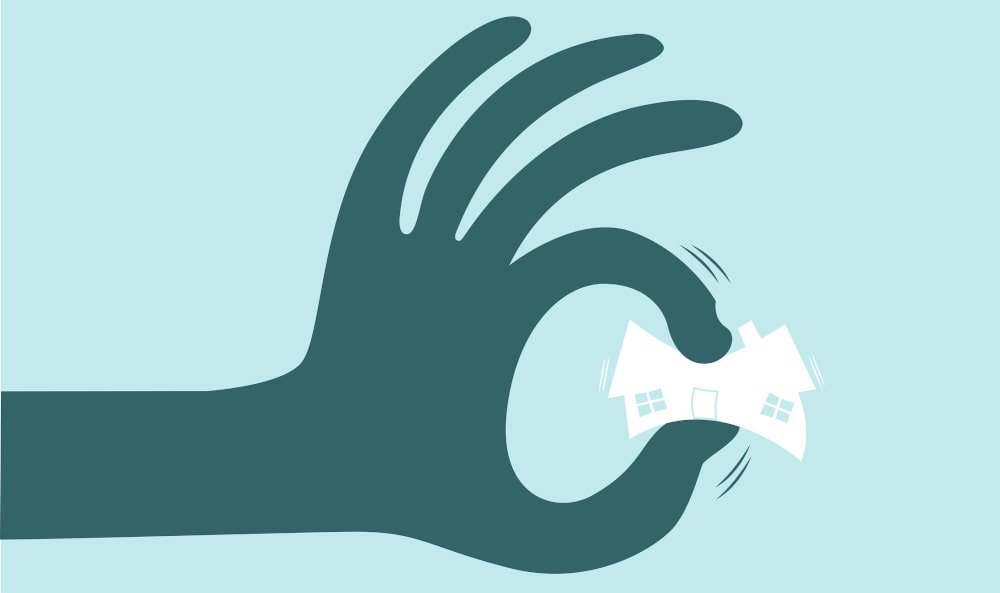Top 3 Mortgage Myths Debunked

Obtaining a mortgage is a crucial step in any homebuyer’s plan to purchase a home. When looking to finance your home, it is important to familiarize yourself with the mortgage process and to stay informed about your options. One of the best ways to stay vigilant is to be aware of common mortgage myths and learn to debunk them before they affect your decisions.
Myth 1: Putting 20% Down is a Must to Purchase a Home
When purchasing a property, your down payment can be any size you want it to be, so long as it falls above the minimum limits. You must also be able to qualify for a mortgage to cover the remainder of the purchase price.
The legal minimum down payment will vary based on the purchase price of your home, the location of your home, and other factors.
- A property whose purchase price falls below $500,000 CAD will only require a minimum down payment valued at 5% of the purchase price.
- A property whose purchase price falls between $500,000 CAD and $999,999 CAD will require, at the very minimum, a down payment valued at 5% of the purchase price up to $500,000 CAD ($50,000 CAD) plus 10% of the remaining purchase price.
- You will only be required to put a minimum of down a 20% down payment if the purchase price of your home exceeds $1 million, unless you can find a private mortgage lender who would lend above 80% loan to value, but that will be a very expensive option.
Even if you cannot afford a large down payment, there are a few payment assistance programs and grants you can take advantage of. Your mortgage broker can usually direct you towards the appropriate programs in your area.
One well-known assistance program is the First Time Homebuyers incentive . Under this program, you may be eligible to receive 5% to 10% of your home’s purchase price to put towards your down payment.
While putting 20% down is not always a must, the more money you put down upfront the lower your monthly mortgage payments will be, making it easier and faster to pay off your mortgage. Make sure to thoroughly consider the pros and cons of a 20% payment before deciding how to proceed.
Myth 2: Pre-Qualification and Pre-Approval are the Same
While mortgage pre-qualification and mortgage pre-approval may sound very similar, they are actually quite different from one another.
Pre-qualification is a very quick process that usually occurs before pre-approval even begins. It usually consists of a quick phone call between the potential borrower and their lender. After answering a few short questions about their income, debt status, and credit scores, the lender uses this information to roughly assess the borrower’s eligibility for a mortgage.
Unlike with a pre-approval, for pre-qualification purposes, the borrower does not need to provide any documents as proof of their financial situation. For this reason, a pre-qualification is not considered as reliable as a pre-approval. You can think of a pre-qualification as a kind of rough quote which can change significantly once the borrower’s full situation is reviewed in detail.
On the other hand, getting pre-approved is a much more thorough and accurate process. To get a proper pre-approval, aspiring homebuyers meet with a mortgage broker and present documented proof of their current financial situation. Your mortgage broker will likely perform credit checks, income checks, and stress tests to determine your current financial position and ability to pre-qualify for a mortgage. After the assessment by your broker, they will submit a formal pre-approval application to the lender. This process allows the borrower to receive a more accurate prediction as to whether or not they will qualify to receive a mortgage loan, and the amount and rate of that mortgage.
The most important thing to know is that a pre-approval will get you much further than a pre-qualification. Because pre-qualifications are conducted without any real evidence of the borrower’s finances, there is a much higher risk of false or misleading information being declared as fact which could completely discredit the simple pre-qualification. As such, most sellers are not compelled by pre-qualifications, preferring the more official nature of a pre-approval.
Myth 3: You Must Have Perfect Credit to Qualify for a Mortgage
While credit checks are certainly a vital part of the mortgage approval process, many homebuyers overestimate just how good their credit needs to be in order to get a mortgage. In Canada, credit scores range from 300 to 900, but many Canadians believe you need a score of at least 800 to be approved for a mortgage loan. In actuality, even a score of 680, and in certain cases 640, can be enough to qualify you for AAA lenders, giving you access to some of the best mortgage rates and terms.
If you have a score lower than 600, you may still be able to qualify for a mortgage even if you are not approved by a AAA lender. Most non-traditional institutional lenders accept any credit score over 600, and private mortgage lenders will approve a borrower with credit that is lower than 600. It is important to keep in mind that the interest rates and fees will be higher when working with an alternative lender. This increase in rates and fees is how the alternative lenders secure themselves against the added risks associated with granting a mortgage to a borrower with a lower credit score.
If your credit score is below 600, you can use a number of strategies to improve your credit score before applying for a mortgage . One of the easiest ways to accomplish this is by making small purchases on your credit card and paying them off immediately.
If you are still concerned about your mortgage eligibility, working with a mortgage professional may be helpful. Contact Clover Mortgage brokers today to book a free consultation with one of our experienced brokers to learn how you can qualify for a mortgage.
References





